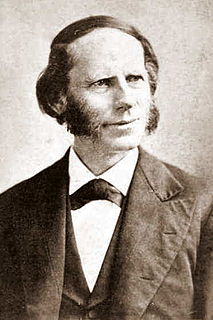A Quote by Barack Obama
Even those who claim the Bible's inerrancy make distinctions between Scriptural edicts, sensing that some passages - the Ten Commandments, say, or a belief in Christ's divinity - are central to Christian faith, while others are more culturally specific and may be modified to accommodate modern life.
Related Quotes
We cannot have faith without belief, but we can believe without having faith. Belief is the foundation of faith. Faith is trusting in our Lord and Savior, Jesus Christ. The scriptures contain many assurances of salvation to those who exercise faith and obey the commandments... Faith is the motivating force that impels action.
One can understand nothing of Christ without the mystery of the Trinity, nothing of the Church without faith in the divinity and humanity of Christ, nothing of the sacraments without the bridal mystery between Christian life without Christian faith. Thus, the present sermons revolve around the same center--the inexhaustible mystery of the one indivisible faith.
The Bible is a warm letter of affection from a parent to a child; and yet there are many who see chiefly the severer passages. As there may be fifty or sixty nights of gentle dews in one summer, that will not cause as much remark as one hailstorm of half an hour, so there are those who are more struck by those passages of the Bible that announce the indignation of God than by those that announce His affection.
If you ask three people what it means to be Christian, you will get three different answers. Some feel being baptized is sufficient. Others feel you must accept the Bible as immutable historical fact. Still others require a belief that all those who do not accept Christ as their personal savior are doomed to hell.
Christian faith is exclusivistic. Christian faith lays claim upon our lives. The sanctity of life, what we do with a life, is very definitive in the Christian faith, what we do with sexuality, what we do with marriage, all of the fundamental questions of life have points of reference for answers, and people just have an aversion for that. That I think is the biggest reason they feel hostile towards the Christian faith.
Belief is in a sense passive, an agreement or acceptance only; faith is active and positive, embracing such reliance and confidence as will lead to works. Faith in Christ comprises belief in Him, combined with trust in Him. One cannot have faith without belief; yet he may believe and still lack faith. Faith is vivified, vitalized, living belief.
We impose our modern worldview on the Bible to make it conform to our intellectual happy place. But we deceive ourselves into thinking this works or is legitimate. We fail to realize that the supernatural things we want to avoid are no more supernatural (or "weird") than the things that define the Christian faith. What's so "normal" about the virgin birth, the Trinity, the deity of Christ, the bodily resurrection of Christ, the hypostatic union of the incarnation (Jesus was 100% God and 100% man)?
A Cultist is one who has a strong belief in the Bible and the Second Coming of Christ; who frequently attends Bible studies; who has a high level of financial giving to a Christian cause; who home schools his children; who has accumulated survival foods and has a strong belief in the 2nd Amendment, and who distrusts Big Government.
Anytime you're dealing with moral issues, in a government position, you're dealing with some sticky stuff because everybody's morality is different. So you may be a Christian and say "my morality is based on the Bible." But if it doesn't line up with the way they think it should line up, now you got a problem with them. And then you can say, "I'm more in line with the Bible," but you don't care about the Bible, so they are like 'why are you imposing these difficult rules on me? I don't even believe in that.' So you just have an interesting and sticky situation.


































